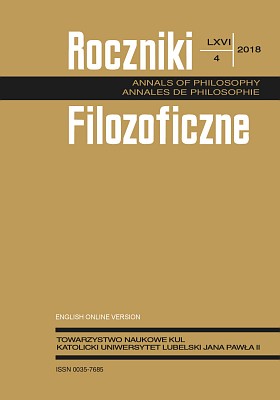Fragmented Future Contingents and Omniscience
Fragmented Future Contingents and Omniscience
Author(s): Ciro de Florio, Aldo FrigerioSubject(s): Philosophy, Metaphysics
Published by: Towarzystwo Naukowe KUL & Katolicki Uniwersytet Lubelski Jana Pawła II
Keywords: divine foreknowledge; human freedom; metaphysics of time; fragmentalism
Summary/Abstract: In this paper, we have analyzed a number of solutions to the antinomy between divine foreknowledge and human freedom. If we assume that God is temporal, then a sort of backwards causation of past divine beliefs by future human acts must be acknowledged. Since this solution runs into difficulties, we consider the prospects of the view according to which God is outside time. A timeless and omniscient God seems to imply a B-theory of time and, at least at first glance, seems to jeopardize human freedom. Therefore, we have examined what happens when a non-standard A-theory of time like Fragmentalism is assumed. We demonstrate that in this case the prospects of a timeless view of God are much better: both human freedom and divine knowledge of the results of human choices are preserved if this metaphysics of time is adopted. The costs of this solution are, however, very high. From the logical point of view, it rejects bivalence; from the metaphysical point of view, the world is regarded as fragmentary and incoherent. However, if one is ready to accept these costs, this solution is one of the most successful in the search for a solution to the centuries-old problem of the conciliation between divine foreknowledge and human freedom.
Journal: Roczniki Filozoficzne
- Issue Year: 66/2018
- Issue No: 4EOV
- Page Range: 39-54
- Page Count: 16
- Language: English

